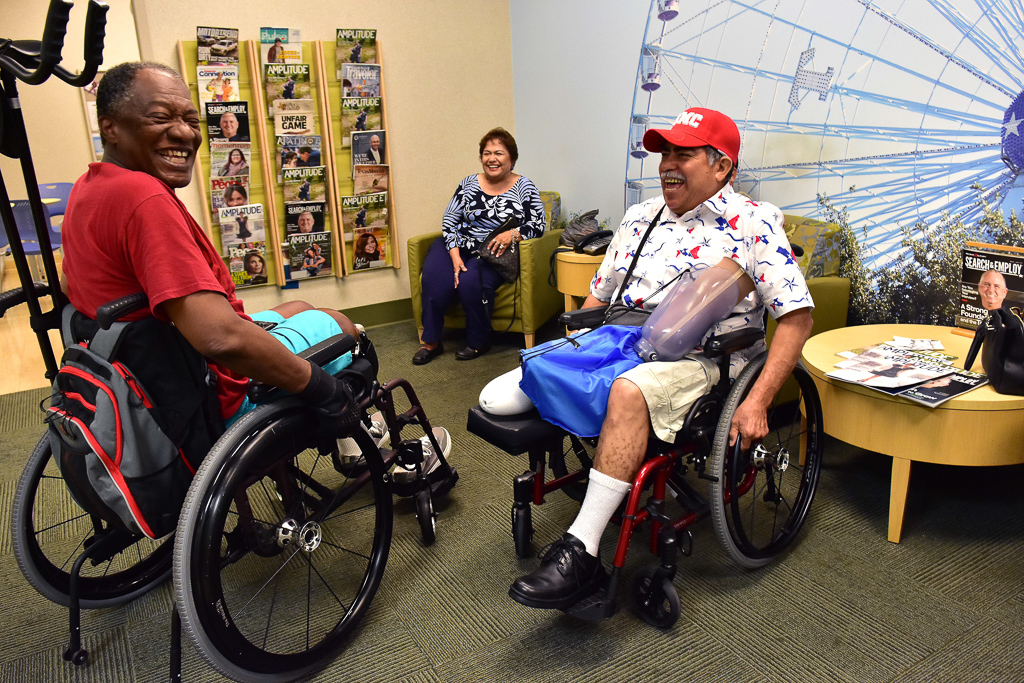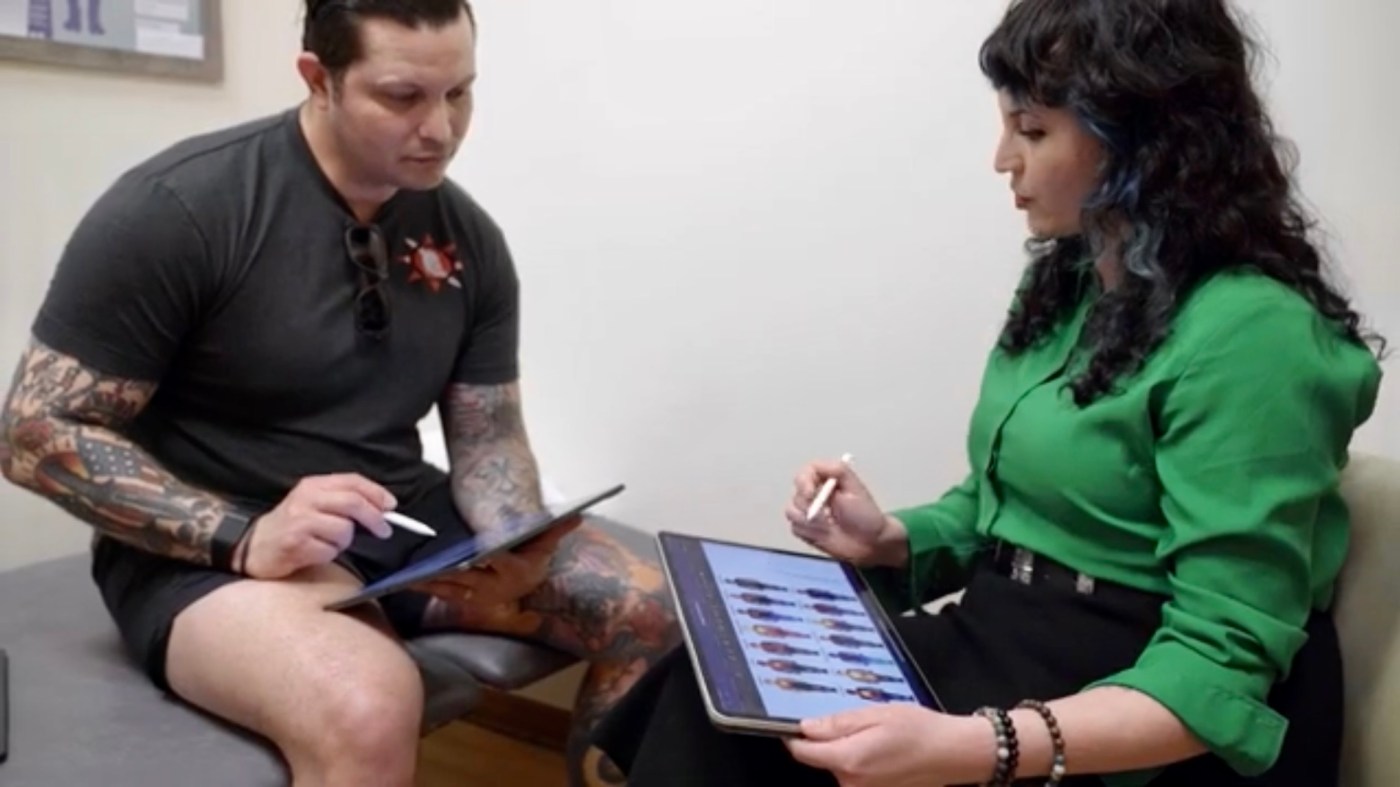W.L. Harris made it through combat in the jungles of Vietnam relatively unscathed. But there would be one battle, some 50 years later, that the 71-year old U.S. Marine Corps Veteran would wage and ultimately suffer life-altering trauma. Harris did not wage this battle alone. The battlefield and trauma associated with this disease is known to nearly 34,000 of Harris’ fellow patients at VA North Texas Health Care System, with many more at risk—Type 2 diabetes.
Type 2 diabetes prevents your body from using insulin the right way. To compensate, the body creates more insulin, and eventually the body stops responding all together. It’s the most common type of diabetes–27 million people in the U.S. have it. Another 8 million people have it and don’t know it because the symptoms are often mild and often go unnoticed for many years. Lifestyle and genetics are the two leading causes. Left diagnosed and untreated, Type 2 diabetes can be deadly and life-altering.

U.S. Marine Corps Veterans W.L. Harris performs a variety of tests to evaluate his agility and stamina as Physical Therapist Karen Schwarm evaluates his rehabilitation following a right-leg amputation. Harris’ amputation was the result of Type 2 Diabetes, and at age 71, Harris is having to relearn many activities that most take for granted everyday such as walking, traversing steps and driving. 80% of amputations performed in the VA Health Care System are the result of diabetes and the health conditions brought about by diabetes.
“Diabetes can lead to congestive heart disease, acute renal failure, and many other complications” said Dr. Joseph Milburn, VA North Texas Chief of Endocrinology. “But these issues can be avoided in many cases with some basic lifestyle changes.”
Untreated Type 2 diabetes can also lead to acute peripheral vascular disease requiring the amputation of limbs. Harris lost his right leg because of vascular issues brought on by diabetes only months ago. Now, he’s learning to walk again, determined that he will not be confined to a wheelchair.
“You have to be honest with your doctor,” said Harris. “But more importantly, you have to be honest with yourself.”
In all, diabetes is responsible for 80% of the non-traumatic amputations across VA health care, far outpacing amputations resulting from combat or traumatic incidents, such as car accidents. Many of these amputations could have been avoided if detected and treated early.
“Unfortunately, once they’re my patient, there’s no going back as their life has changed forever,” said Milburn. “The best we can hope for is to keep them from more catastrophic outcomes like acute kidney or heart disease.”
Catastrophic outcomes like amputations require significant lifestyle adjustments. Harris recently completed a driver re-training program at VA North Texas’ Dallas campus where he learned how to operate a vehicle modified with hand controls. It will be several months before he can drive again as his personal vehicle undergoes a $20,000 modification to equip it with the needed hand controls.
“I’m OK with moving around my house, but I can’t get around in different environments like I did before,” said Harris.
Through diet, exercise and open and honest communication with a physician, many Veterans could avoid diabetes. For those who’ve worn a uniform, the strict regime of diet and exercise stops the day they hang up the uniform, as does regular check-ups with medical professionals. Breaking the mindset of doctor avoidance is the first step in avoiding preventable diseases like Type 2 diabetes. And for most Veterans, it’s all about the numbers.
“You’ve got to know your numbers and what they mean,” said Kayla Acomb, VA North Texas clinical dietitian. “You’ve got to know if your glucose and other key indicators are on the rise, so you can slow, or even stop, the progression towards diabetes.”
A fasting blood sugar level of 100 to 125 mg/dl is considered prediabetic. Other indicators, or associated conditions, such as hypertension, can also be detected through routine check-ups and blood tests. VA recommends a blood test for all adults starting no later than age 45. If the results are normal, testing should be repeated at a minimum every three years.
“Stay ahead of your health,” said Harris. “The longer you wait, the worse the issues can become and the greater the impact to your life.”
VA North Texas has many programs available to help Veterans make lifestyle changes to avoid diabetes, offering cooking classes, nutrition counseling, and holistic-based Whole Health programs.
Since losing his leg, Harris is diligently rebuilding his life–relearning how to walk, drive, and modify his home. He readily acknowledges his role in getting to this point in his battle with diabetes and is grateful for the professionals at VA North Texas and the Veterans he’s come to know through these life-altering times.
His advice for those fellow VA North Texas Veterans living with, or at risk for, Type 2 diabetes is direct, and heartfelt.
“Don’t be afraid to go to the doctor and tell them the truth about what’s going on with you’” said Harris. “Save your own life.”
Michael Cole is a public affairs specialist with VA North Texas Health Care System
Topics in this story
More Stories
Health summit gave Veterans opportunities to visit with VA staff and meet community organizations that provide services to Veterans.
STAR is a rehabilitation program for Special Operations Forces service members and Veterans. It facilitates recovery, function, reintegration, and transition.
Dr. Cohen left his mark on the specialty care clinic staff and on the Tuscaloosa VA Medical Center as a whole.







Most what i read online is trash and copy paste but i think you offer something different. Keep it like this.
Good luck to these gentlemen. My dad is going through something similar. It gets better if we fight it.